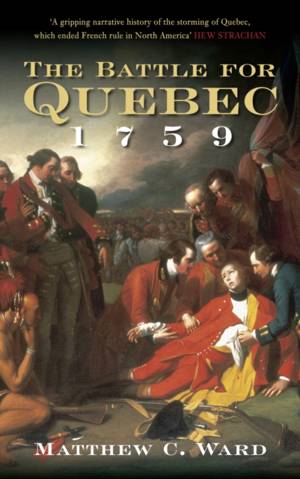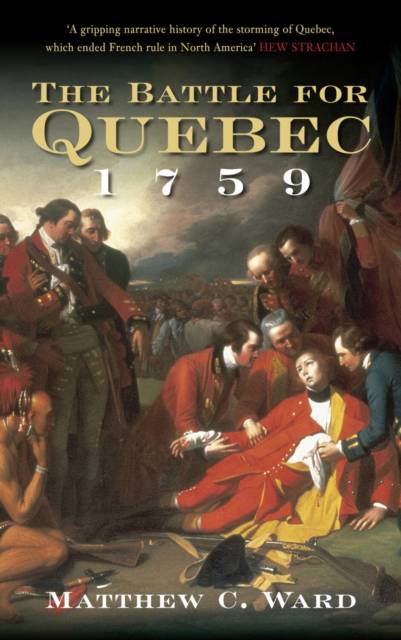
- Afhalen na 1 uur in een winkel met voorraad
- Gratis thuislevering in België vanaf € 30
- Ruim aanbod met 7 miljoen producten
- Afhalen na 1 uur in een winkel met voorraad
- Gratis thuislevering in België vanaf € 30
- Ruim aanbod met 7 miljoen producten
Zoeken
Omschrijving
On 13 September 1759, British and French forces fought one of the most decisive battles in history, on the Plains of Abraham outside the Canadian capital, Quebec. The British force decisively routed the French, seizing the city and, ultimately, all of Canada. But the struggle for Quebec was far more than one climactic battle: the campaign involved an immense military and naval operation, an eighteenth-century D-Day. Matthew Ward has researched extensively in archives in Britain and Canada to look at the entire campaign for Quebec, from its inception in Whitehall to its ultimate culmination in Montreal in 1760. He has probed beyond the actions of commanders and generals, to examine the experiences of the campaign for the ordinary soldier and civilian. What emerges is not just a picture of bravery and heroism, but also of a campaign which became increasingly brutal and cruel, both sides resorting to practices such as the routine scalping of enemy dead. It is also a surprising picture of the day-to-day, often mundane, lives of civilians and troops many thousands of miles from home.
Specificaties
Betrokkenen
- Auteur(s):
- Uitgeverij:
Inhoud
- Aantal bladzijden:
- 288
- Taal:
- Engels
Eigenschappen
- Productcode (EAN):
- 9780752452203
- Verschijningsdatum:
- 6/07/2009
- Uitvoering:
- Paperback
- Formaat:
- Trade paperback (VS)
- Afmetingen:
- 126 mm x 197 mm
- Gewicht:
- 308 g

Alleen bij Standaard Boekhandel
+ 36 punten op je klantenkaart van Standaard Boekhandel
Beoordelingen
We publiceren alleen reviews die voldoen aan de voorwaarden voor reviews. Bekijk onze voorwaarden voor reviews.







